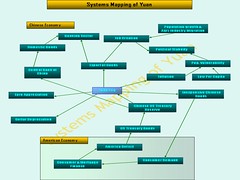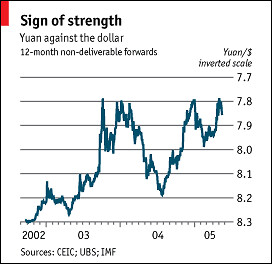My University, The University of South Australia (UniSA) conducts something called the "Working Links" seminars. This as the Pro-Vice Chancellor of the Division of Business at UniSA, Garry Griffin, says is one of UniSA's way to give back to the community.
In this seminars, the top Profs at UniSA present their research in a public seminar. The first one for the year kicked off today.
The search for sustainability: Balancing environmental, economic and social needs Professor Rob Fowler, presented his ideas on sustainability and what needs to be done in that area. He specifically covered his experience as an advisor of the 'Environmental Protection Agency' for South Australia.
In trying to find common ground, Prof Fowler suggests practical ways the issues can be addressed, looking at three main areas – ‘law and order’, ‘jobs and the environment’, and ‘people power’.
Some excerpts :
“There needs to be more emphasis on law and order. We need to strengthen regulation and how it’s administered, develop smart regulation – looking at using economic instruments, market mechanisms, and voluntary methods industry might adopt – as well as alternatives to conventional regulation that might work better for everyone,” Prof Fowler says.
“When we look at jobs and the environment, the legal and policy framework is inadequate in helping the EPA to do their job. There isn’t enough clear guidance and there’s a need to develop criteria for weighing up economic and environmental values. For example, if you’re going to trade off a wetland for a project that would deliver a whole lot of jobs – in what circumstances are you willing to do that? We need to go to the next level of detail in defining what sustainability means when these sorts of decisions are being made.”
And Prof Fowler also advocates a greater level of public involvement in all levels of the decision making process. “There is a need for more people power, to revamp the Environment Protection Act and the way in which the EPA operates to provide greater community involvement in its decisions. Currently there is a closed loop in
terms of access to information, public participation in decision making and access to appeal to the courts. These are some significant deficiencies in the South Australian system at the moment.”
I discussed the case for India. My point was that India had a different problem from Australia in the sense that we needed to manage our economic development and environmental prorection. Australia and other developed countries were in a much better position to manage the environments. However, there are a large part of the Industry which does not believe in this.
He had a particular mention about the Supreme Court of India which had to step into the administrative role to clean up Delhi, The Ganges and The Taj Mahal. Since he was a lawyer he was more keenly interested I guess.
However, coming to the point of sustainability and environmental protection one major point is the problem of measurement.
How do we measure 'better environment' or worse environment'. In the same way that we can measure profits, inventory turnover, sales per quarter we need better methods to understand and measure this environment.
This is important for many reasons. The other day I was watching a video called "The Corporation". This was an interesting video in many ways. One of the good things about an MBA program is that you get to know new things, see these videos, read the books and have fun.
Ok, coming to the video, the main concern there was the way the companies were wrong in many ways and the 'corporation' was compared to a psychopath. I guess it needs another post to explain, however I found a piece of that program which is very relevant.
One of the commodity traders in the US had this to say.
He said how do we know what the companies are doing on the environment front. If you have stocks we trade, if you have information on pigs we can trade. In the same way if you can make environment a commodity we can trade on them.
I think that he meant a lot. Measuring the environment, tradable pollution units and other "accountable" measures are need to make a difference to the field of sustainability.








